Tools for Amateur Radio
This is an evolving table. I was recently asked about what tools a new ham should work on acquiring first and how to make the best choices for these tools. This is very hard. There are SOOOO many tools. Please advise if we have left something out. The criterion for this list is vague but I'd like to try to state the criterion and then see if we can stick to it. Let's assume we visit a hundred different experienced-ham work-shops and pick the several tools which are common in most of them. Then we'll try to figure out how much we should spend in this tool or category of tool and what the best products are. Or maybe we'll forget all that and just scattershot this list down onto the nebulous bits of the Internwebs. First rule of thumb. I suggest getting tools which are made in the USA, Germany, Japan. Pick tool companies which are likely to herald their brand name on all their products so you know who to cuss at when the tool goes bad too quickly. Good brand names for hand tools. If not getting one of these, get better or get cheaper.Proto, S-K Hand tool, Klein, Husky, Commercial Electric, Armstrong
Stanley, Black&Decker, Xcelite, and many other brands are all right but your millage may vary. I'd like to say that I keep track of the tools that are horrible but I'm not that good.
The total tool set listed here would be $1000 or more. Don't be discouraged. Once piece at a time. Your best bet as you start is learning what these tools are and do and where to get them so when you need them you can solve the problem. The worst thing to do is to need a tool but out of ignorance you go about solving the problem in some other, more dangerous, more destructive, or less reliable way.
While many hams won't lend out their primary set of basic tools, they are not unlikely to invite you over to use theirs, or to drop buy and help you with their tools. Here is an ARRL book which discusses tools and goes into detail about how they are used and when you will need them: The Radio Amateur's Workshop This list is in order of importance. Those who have an oscilloscope and no screw drivers go to the back of the line.Here's the list
- Screw drivers - beyond an all-in-one. Need separate screwdrivers, also get tiny screwdrivers
- Diagonal Cutting Electronic Pliers (dikes) -- several sizes. 4" and 6" maybe
- 6" slip joint Pliers
- 4.5" and/or 6" Inch Standard Needle Nosed pliers
- 6" Crescent Wrench
- Measuring tape (usually steel self retracting) 25'
- Scissors
- Retractable Box Cutter Utility Knife
- Irwin model 10WR vise-grip
- Volt Ohm Meter -- Original Fluke 77 is a good used model -- $60 or under on ebay -- or $10 for Harbor Freight POS
- Temperature controlled Soldering Station -- Weller. Should cost around $100 -- has holder and sponge -- see below
- Wire stripper hand tools for 12 through 30 gauge wire -- two separate tools
- Panavise model 301 desktop vise
- Metal Ruler, 1 foot is adequate -- should have both metric and english measures
- Work table comfortable for computer use but impervious to falling melted solder. It should have 15 square feet of work area and not be rocked or moved without effort. See workbench photo below.
- Spot lights to completely illuminate work area without shadows. Usually a $3 LED light and a pair of floor standing upward aimed 110vac lamps are a good start
- Metal cased switched power strip with 8 110v grounded sockets -- I personally like the BELKIN F9D1000-15
- Tri-Crimp Powerpole crimper - PowerWerx -- available from Gigaparts and Ham Radio Outlet for about $43
- Ratchet Crimper specifically designed to install coax connectors. Crimper for RG-8, 213, 8X, 58, 174, 316, 59, 6, 11, LMR-400, LMR-240, 9913. Uses two dies. This can come from QSRADIO for about $50
- Ratchet Crimper tool and die set for lugs, open barrel terminals, molex -- maybe just a die add-on for the coax connector crimper
- Coax stripper for RG8/X coax. A separate stripper that handles RG8, LMR400. Quicksilver or Amazon
- Chemical fire-starter (butane -- like a cigarette lighter) -- used for 'fixing' rope ends
- Carpenter's Square (L shaped item) Home Depot 16 in. x 24 in. Steel Framing Square
- Hack Saw
- Nut Driver set
- Indelible Ink Marker, Black
- Hammer -- I'm thinking a 20 oz. Straight-Claw Rip Hammer though there are many kinds. You need at least one.
- High speed 3/8" reversible drill and bits -- $80 or less from Milwaukee, Makita, Dewalt, Bosch
- Staple Gun
- Bubble Level
- DS017 Soldapullt or Tenma 21-8240 Vacuum Desoldering Iron
- Solder Wick (copper braid impregnated with flux).
- 50 watt capable dummy load for 1 to 500Mhz
- SWR meter for 100 through 500Mhz and up to 100watts -- not to be left in-circuit! -- I purchased a Gam3Gear Surecom SW-102 Digital VHF UHF 125-525Mhz Power & SWR Meter for $50 on Amazon. So far I'm pretty happy with it.
- SWR/wattmeter meter for 1 to 60Mhz and up to 100watts -- not to be left in-circuit!
- Cell phone or digital camera with video, panorama, and macro-lens-capable camera and nice big review screen
- Weller Soldering Gun (see below) or Iso-Tip #7971 SolderPro 50 Butane Soldering Iron -- for away-from-bench work.
- Socket set (deep well and shallow well sockets)
- Non-conductive tools for tuning. plastic tools for prying.
- Heat gun (pain stripper?) for doing heat shrink.
- Sabre saw for cutting wood, PVC and thin metal masting/plate
- Nibbler tool
- Brother P-touch label maker
- Alcohol impregnated cleaning cloths, for lens cleaning and for getting crud off of old radios
- RigExpert Antenna Analyzer or portable VNA
- Oscilloscope, 50Mhz, single channel -- available in used market for under $100
- Craftsman 4 drawer tool chest 00912729 -- $110 or so. Sears may be the high price supplier
Click to embiggen
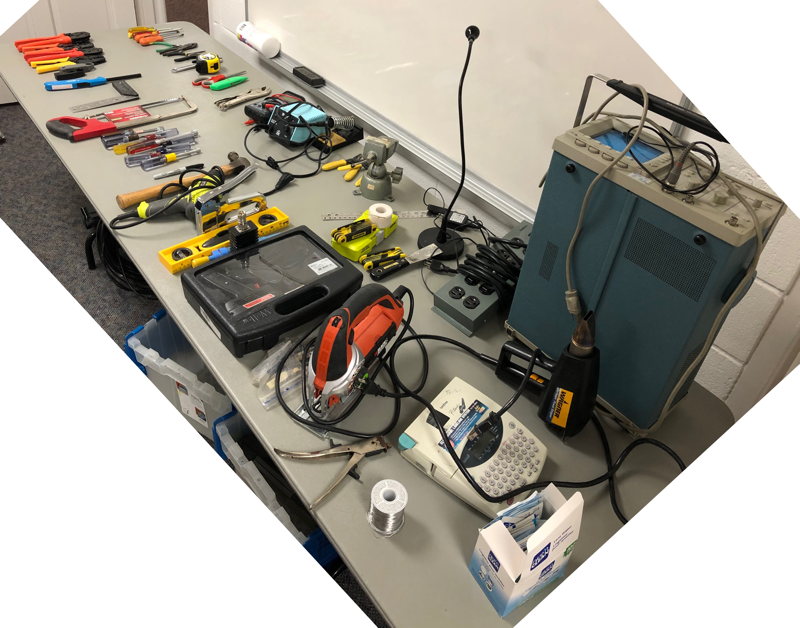
Missing from this pic are the RigExpert, workbench, toolbox, socket set, and the SWR/watt meter.
On the table but not on the list are the solder, hex drivers and pain scraper.
Soldering Equipment
|
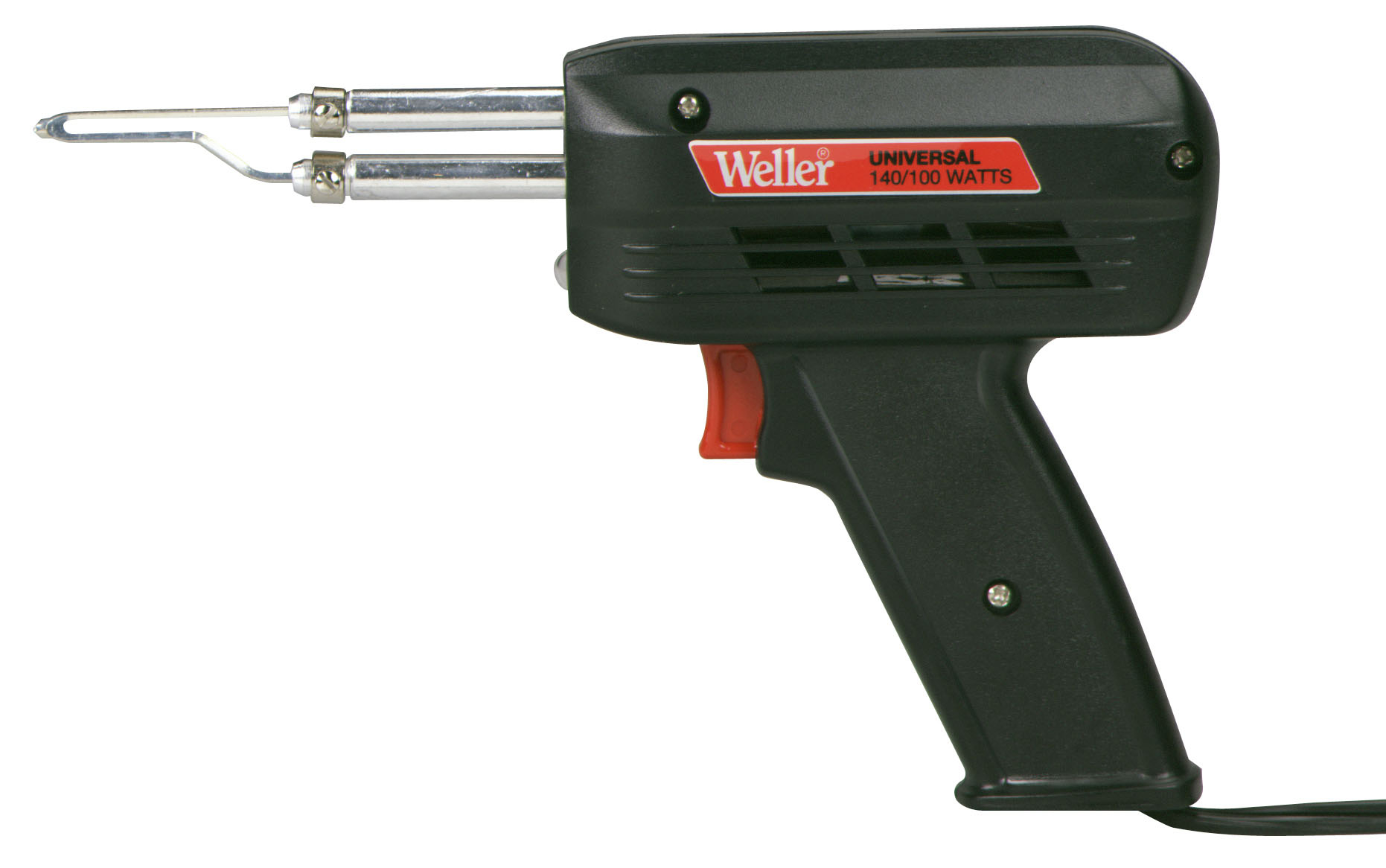
|
|
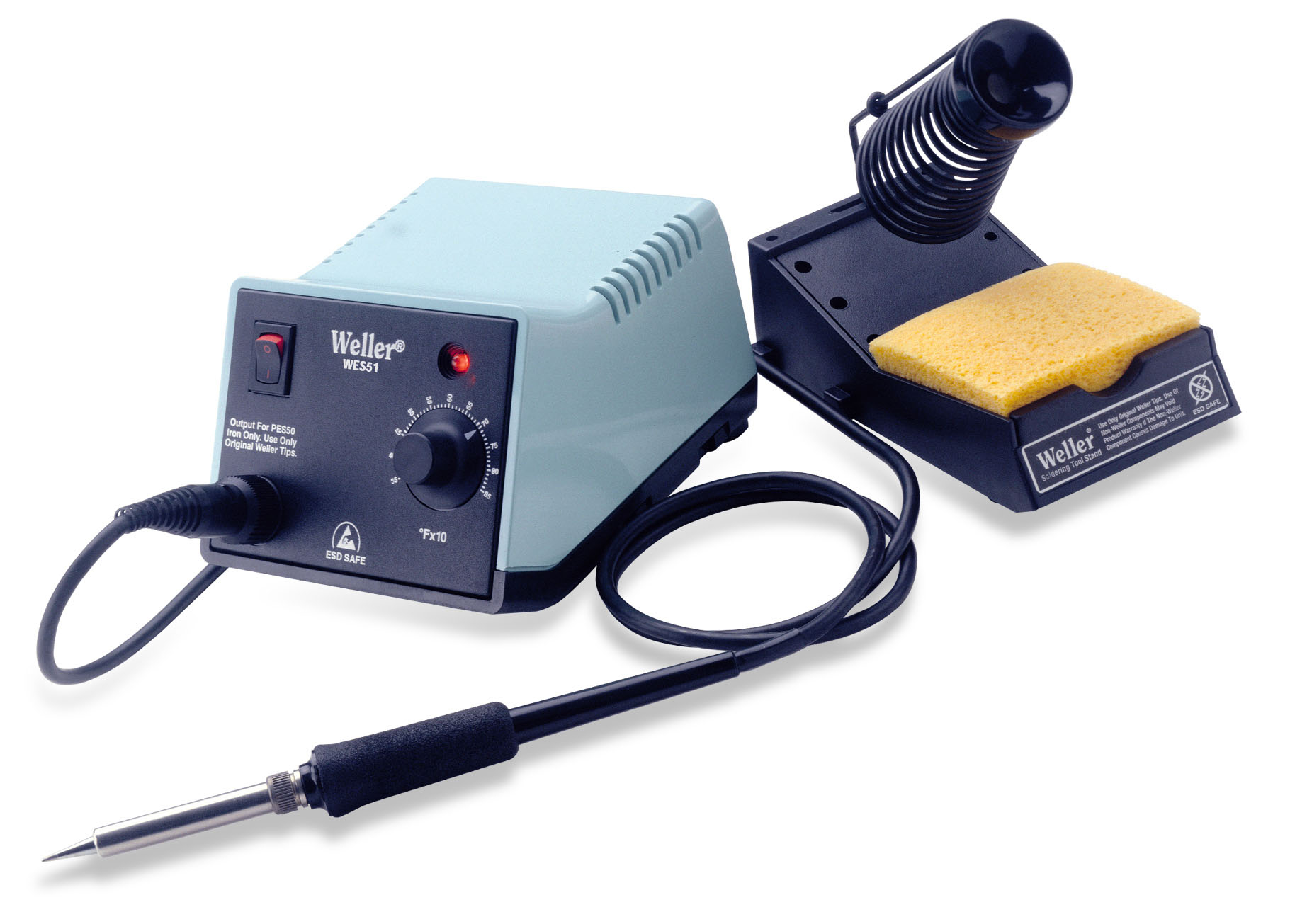
|
|
Iso-Tip #7971 SolderPro 50 Butane Soldering Iron
Butane powered portable soldering iron. This device is under $30 on Amazon. It heats up fast and cools down fast. It can be pulled out of a tool-box to solder a coax connector (after you run the wire through the wall you need to put a connector on it else you need a much bigger hole). It can be used to solder heavy wire onto a balun or to do a splice at field day after somebody runs over your wires. Also cooks Creme Brûlée. |
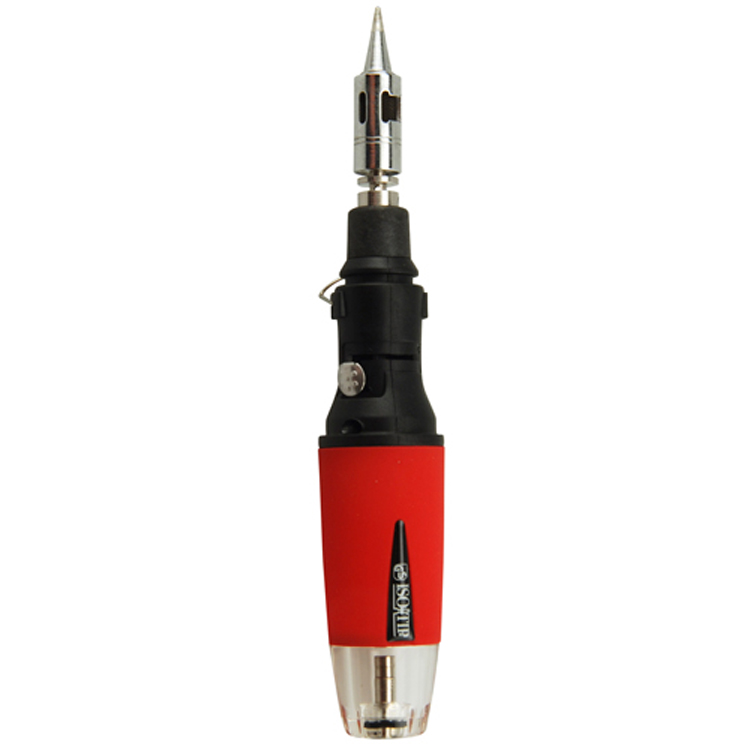
|
|
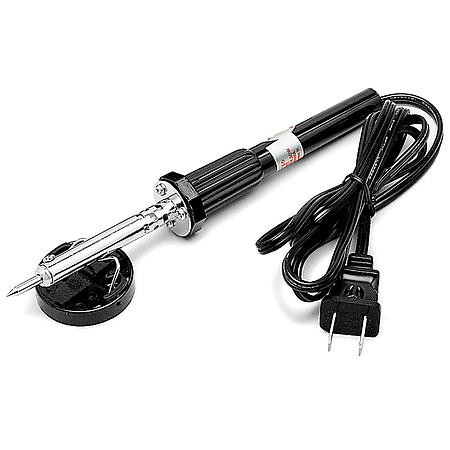
|
Workbench:
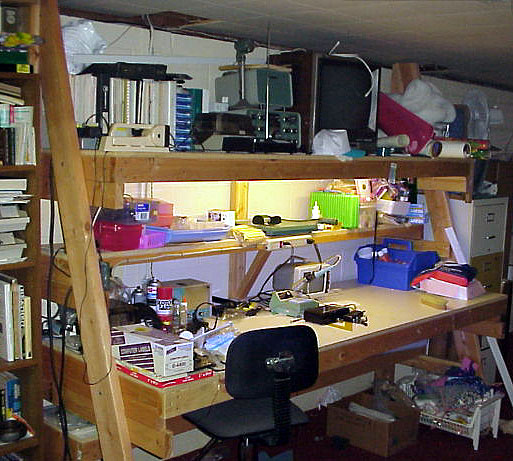
Search the web for taddbench